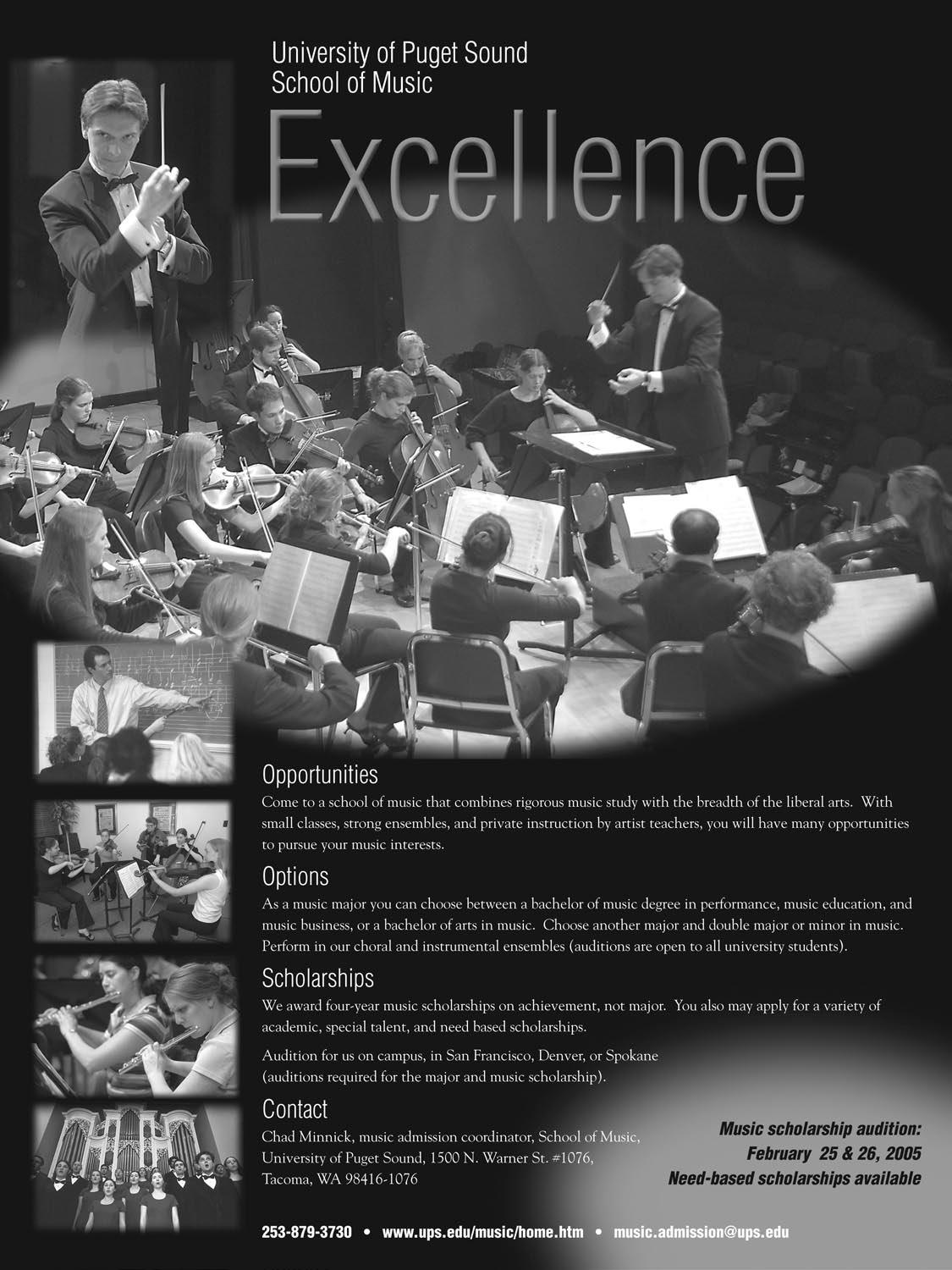
3 minute read
NorthByNorthwestReneeWestlake
FurnitureRepair
Did you know that a good teacher is kind of like a sturdy three-legged stool? I had a three-legged step stool when I was younger. It was the sturdiest piece of furniture in my house. It never rocked; it never wobbled; and it could hold a great deal of weight! One day I was using it incorrectly and had placed it upside down. One of my family members didn’t see it there and tripped over it, breaking one of the legs in half. I glued and bolted it, but part of it was missing and splintered—it was never quite the same.
Advertisement
So what does a three-legged stool have to do with the outstanding music educators who read this journal? Absolutely everything! Our students, parents, administrators, and community count on us to make the core course of music what it needs to be to provide the necessary balance in our students’ total education. Back to the stool. In the same way that a three-legged stool cannot stand if one of the legs is missing, a teacher cannot be a master of his/her craft if one of the three following attributes is missing: a) Musicianship is a critical component in the competence of a music teacher. An understanding of tone quality, phrasing, pulse, rhythmic subdivision, reading, and musical expression contributes to passing that information along to students. Applying that understanding to performance enhances student learning greatly. b) Problem solving is another skill of the master teacher. Every day in education holds surprises and a need for flexibility. A problem solver does not become overwhelmed and burned out by these unexpected events. c) Researching resources gives the competent teacher that extra advantage in the quest for excellence. Knowing who to ask, where to look, what is available, and when to search: all are intrinsically linked to being fully competent. a) Plan your classes and rehearsals, even if you fly well by the seat of your pants! Creating an outline saves time. When teaching is planned, important points are not forgotten. Include pacing, motivating activities, challenge, tension and release, and educational closure. Doing this helps students want to learn in your class. b) Prioritize your day. Most teachers cannot do everything there is to be done. Give yourself a set time to answer phone calls and emails. Schedule time to file music, set up your room, and attend to proactive planning that ensures successful performances. c) Delegate! Train students and parents to be leaders. They benefit and you save your sanity. There are so many details having to do with paperwork, room cleanup, uniform checkout, and event planning that others can be trained to do. It takes a little longer the first time, but it gets easier. a) Care! You have to love what you do and like people. I am reminded of an article I read awhile back in the NFHS Music Journal titled, “How Can You Be Burned Out When You Were Never On Fire?” As this title suggests, it’s critical to stay fired up. b) Listen! Call parents once in a while when their child shows some improvement. Go to a student’s soccer game. Have a potluck for helper parents. Listen to others’ ideas and dreams and incorporate them into your own dreams. c) Praise! Give others credit for their part in your students’ successes; in turn, they will give you credit for being a master teacher.
• Leg #1—Competence: A master music teacher must have knowledge, skills, and experience indigenous to his/her field.
• Leg #2—Organization: I have known many creative teachers who are random and abstract by nature. The master teacher figures out how to master the completion of concrete tasks, even when anticipating all the details isn’t something they come by naturally.
• Leg #3—Interpersonal Skills: If you set others up for success, support them, take an interest in them, and really care—you are well on your way to being a master teacher.
We all have a leg of our stool that needs repair now and then. Whether you are seeking to improve your competence, your organization, or your interpersonal communication skills, a great way to equip your toolbox to make the needed reparations is to attend the Northwest Conference in Bellevue in February. By participating in the fabulous professional development workshops, you will rediscover the energy, motivation, skill, and vision that will help you ably restore the balance you need to perform at the master level of your craft.







